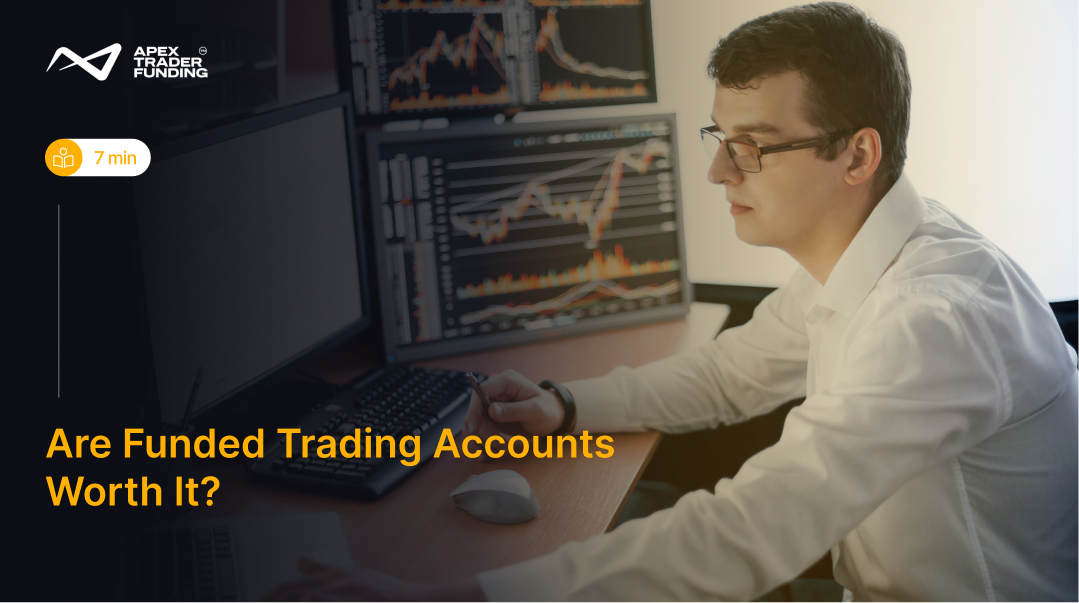
trading-education | 26-08-25
Is a Funded Account Worth It?
Yes, for traders with a proven strategy, a funded account is worth it because it offers 90% to 100% profit splits with zero personal liability beyond the evaluation fee. For a $50,000 account, your maximum financial risk is the entry fee (often <$20), whereas a personal account would require $50,000 in liquid capital to trade the same contract sizes safely.
Many new traders wonder whether funded trading accounts are truly worth the effort. On the surface, they offer a powerful idea—trade with a firm’s capital instead of risking your own. But the real answer depends on how you define “worth.” It’s not simply about access to money; it’s about whether the structure aligns with your long-term goals as a trader.
“The true worth of a funded account isn’t in the capital—it’s in the discipline it forces you to build.”
Why They Can Be Worth It?
Funded accounts provide real advantages for those approaching trading with discipline.
- Skill Development: Clear rules build accountability, encouraging traders to develop disciplined routines rather than rely on risky, impulsive decisions.
- Risk Buffer: With the firm supplying capital, personal savings remain untouched even if trades fail.
- Scaling Potential: Access to larger account sizes creates the opportunity to trade more effectively than most self-funded traders can.
For individuals still building their financial base, this combination offers a safe way to grow.
The $25,000 Perk: Keeping Your First Wins
One of the strongest arguments for Apex's value in 2026 is the $25,000 Threshold. Unlike many competitors that take a profit split immediately, Apex allows you to keep 100% of your first $25,000 in profits per account. For a trader managing 20 accounts (the maximum allowed), this represents a potential $500,000 in tax-advantaged income before the firm ever takes its 10% split. This "payout priority" is the ultimate signal that the model is designed to reward successful traders.
Situations Where They May Not Fit
On the other hand, funded accounts are not for everyone.
- If you expect instant wealth, evaluations and restrictions will feel frustrating.
- If you dislike rules, such as profit targets, consistency requirements, or loss limits, the structure may seem too confining.
- If you resist adapting strategies, then trading within firm guidelines will be difficult.
In these cases, self-funding might suit better because it offers total freedom—alongside the full weight of risk.
Who Benefits Most from Funded Accounts
Funded accounts are not designed for everyone. They tend to work best for traders who already understand basic market mechanics and want a structured way to grow without tying up large sums of personal capital. For intermediate traders, this model provides a testing ground where skills can be sharpened under real conditions.
Newer traders may find the rules and evaluations overwhelming, so starting with education and demo trading is often more effective. On the other hand, experienced traders who value discipline over freedom can leverage funded accounts as a bridge to larger opportunities without increasing personal financial risk.
2026 Reality Check: Payout Speed vs. Rule Lifting
It is critical for traders to distinguish between "Processing Speed" and "Eligibility Freedom." Many firms in 2026 advertise "Fast Payouts," but the true milestone for a professional trader is not how fast the money arrives, but when the Institutional Transition occurs.
The Difference Between PA and Live Prop Status
- Performance Account (PA) Stage: Even with "Fast Payouts," you are still in a restricted environment. Most firms enforce a 30% Consistency Rule, meaning one lucky "windfall" trade cannot account for more than 30% of your total profit. You are also typically bound by a Trading Day Requirement (usually 8–10 days) between withdrawals.
- Live Prop Status (The Goal): Once you prove your discipline over several payout cycles, elite firms may move you to an Institutional/Live Prop Account. This is the ultimate "Worth It" signal. At this stage, the 30% consistency rule is often lifted because you have proven your strategy is repeatable. You gain unrestricted liquidity, meaning you can trade larger sizes and withdraw profits without the "gambling filters" used for newer traders.
2026 Payout Standards: A Comparative Look
To keep the article broad, use this table to show how "Worth It" varies by firm policy rather than just one brand.
Why "Institutional Transition" is the Real 2026 Trend
In 2026, the market has moved away from "instant gratification" and toward partnership models. The firms that provide the most value aren't necessarily those that pay the "fastest," but those that offer a clear path to Live Prop Status.
When a firm lifts the consistency rule for you, they are essentially saying: "We trust your system enough to treat you like a professional partner, not a retail student." This transition is what makes the funded model superior to self-funding for many, as it provides a level of institutional backing and unrestricted liquidity that a $5,000 personal account could never achieve.
Comparing Funded vs. Personal Accounts
The biggest difference between funded and personal accounts is accountability. With your own money, every decision directly impacts your finances, often increasing stress. With funded accounts, you’re trading firm capital, but you must stay within defined parameters like maximum losses or profit targets.
This structure benefits those who struggle with consistency. Many traders discover that external rules help transform scattered habits into disciplined routines. The worth of a funded account, then, comes less from the money itself and more from the professional habits it builds.
“Self-funded trading measures your capital, while funded trading measures your consistency.”
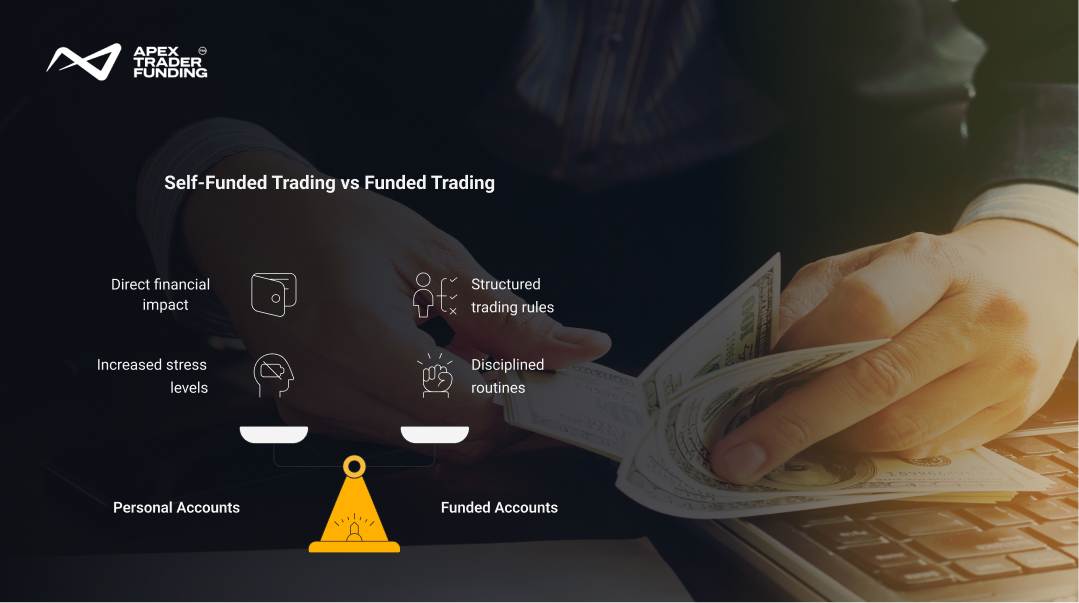
Promp firm vs. Personal Capital (2026)
Educational Takeaway
So, are funded trading accounts worth it? For serious traders, yes—because they act as both a learning tool and an opportunity to scale with less personal risk. They are not shortcuts to riches, but structured environments where discipline, consistency, and patience are rewarded. For traders willing to approach the markets with professionalism, funded accounts offer a practical pathway to build experience and progress toward long-term growth.
Common Misunderstandings to Avoid
- It’s not free money: Even though you don’t repay losses, you must earn the privilege of trading firm capital.
- It’s not a guaranteed salary: Payouts only happen when profits are generated.
- It’s not risk-free: The risk shifts from financial loss to the risk of disqualification if rules are ignored.
The "Safety Net" Concept: Protecting Your Payout
Many traders assume they can withdraw every dollar above their starting balance. However, in 2026, most top-tier firms require a "Safety Net" or "Profit Buffer." This ensures you don't withdraw yourself into a blown account by leaving no room for a single losing trade.
The Apex Example: For the first three payouts, Apex requires you to maintain a balance of Drawdown + $100.
- For a $50,000 Account: If your drawdown is $2,500, your safety net is $52,600.
- The Result: You can only withdraw profits that sit above this $52,600 line during your initial months.
While this might seem restrictive, it is actually a professional safeguard. It forces you to build an "Equity Cushion," transitioning you from a high-risk evaluation mindset to a long-term capital management mindset.
Practical Example: How This Plays Out
Imagine two traders aiming for a payout on a 50K account with a $5,000 profit balance:
The Lesson: Trader B succeeds because they treat the 30% Consistency Rule as a professional benchmark rather than a restriction. It proves the account's "worth" as a long-term income stream rather than a one-time gamble.
“Funded accounts reward patience, not shortcuts—your consistency is the real currency.”
FAQs
Risk levels in funded accounts are limited by the firm’s rules. Typically, you can only risk within the set daily and overall loss limits, which are designed to protect both the trader and the firm. Staying within these boundaries is essential to keep the account active.
Think of it this way: if your account allows a 2–3% maximum daily risk, your position sizing should always be calculated so that even your worst trade stays within that percentage.
Profitability depends on how well a trader matches strategy with skill. Some commonly profitable approaches include:
1. Futures trading – offers leverage and liquidity for disciplined traders.
2. Options strategies – useful for hedging risk or capturing volatility.
3. Algorithmic trading systems – automate setups for consistency and scale.
4. Scalping techniques – quick trades that exploit small price moves.
5. Long-term trend following – steadier gains by riding market momentum.
The most profitable approach is the one where risk is controlled, setups are repeatable, and performance can be scaled over time.
The safest form of trading is one that emphasizes risk control over chasing large gains. Approaches like swing trading, index fund investing, or using options with defined risk tend to offer more stability. Even simulated trading can be considered safe since it allows practice without financial exposure. Ultimately, safety comes from protecting capital and following a disciplined, tested plan.
Truly free funded accounts are uncommon, since most firms require an evaluation or a fee to manage costs. Most firms require traders to pass an evaluation or pay a small fee to cover administrative costs. Some offer promotions, discounts, or trials, but in general, proving consistency and discipline is the only way to access trading capital. However, many providers offer free demo accounts where beginners can practice without risk. These demos don’t provide real payouts, but they allow traders to build skills before attempting a funded evaluation.
Related Blogs
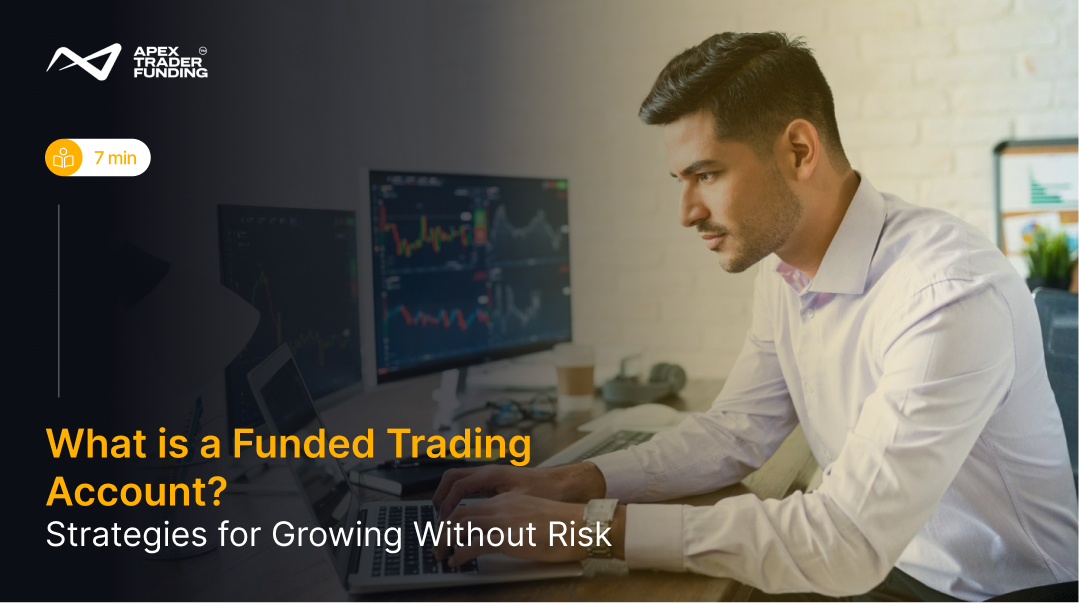
trading-education | 22-08-25
What is a Funded Trading Account? - Detailed Guide
A funded trading account is a financial arrangement where a proprietary trading firm (like Apex) provides you with virtual or...
Read more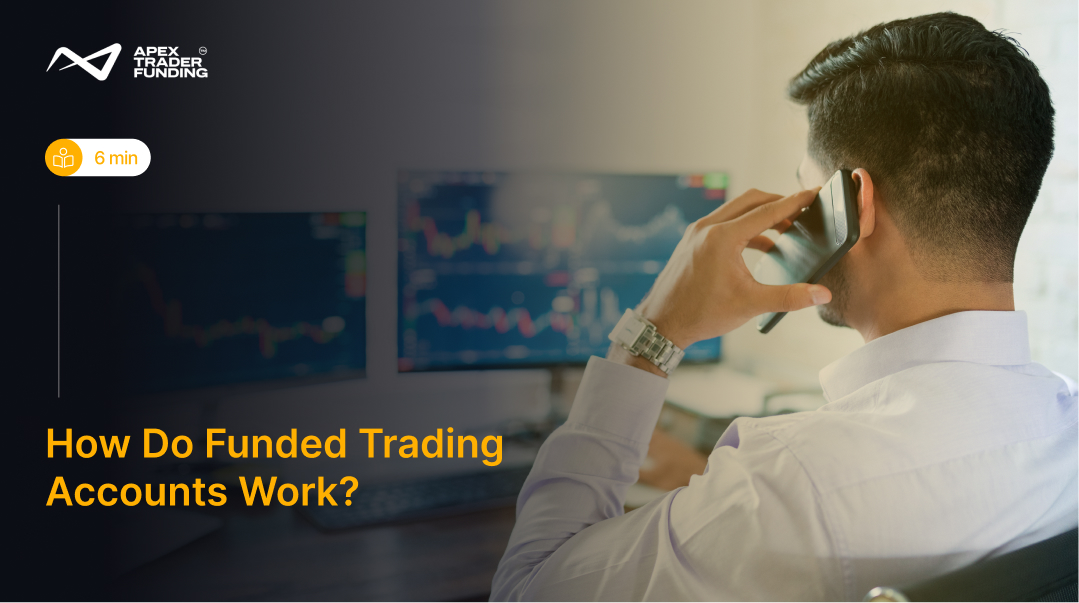
trading-education | 23-08-25
How Do Funded Trading Accounts Work?
A funded trading account works by granting a trader access to a firm's capital after they pass a simulated evaluation....
Read more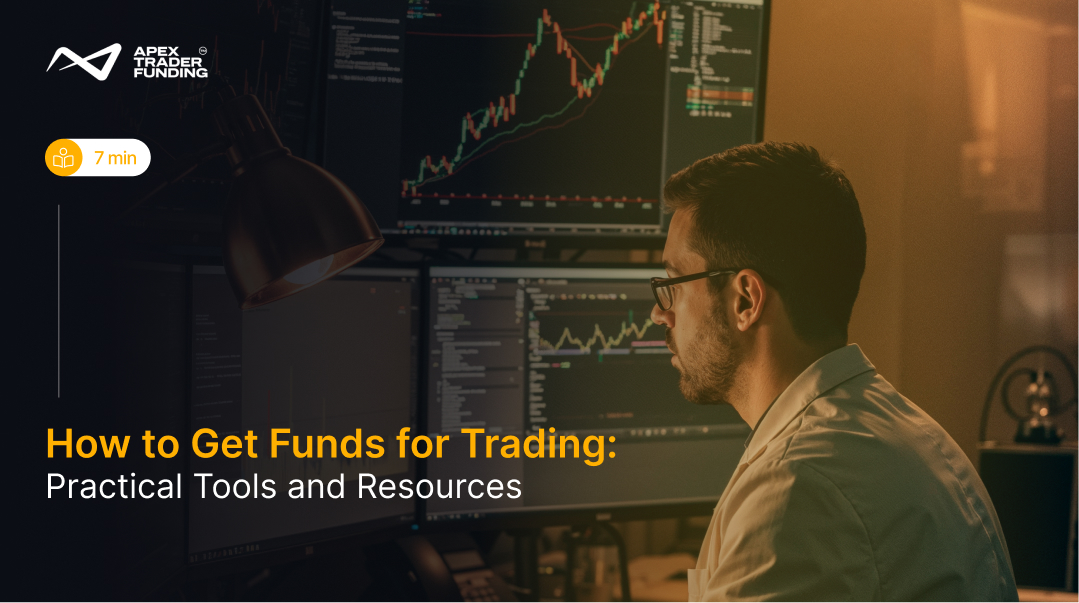
trading-education | 25-08-25
How to Get Funds for Trading? - 6 Practical Ways
Starting a trading journey often requires more than knowledge—it requires capital. Yet many aspiring traders face the same challenge: how...
Read more